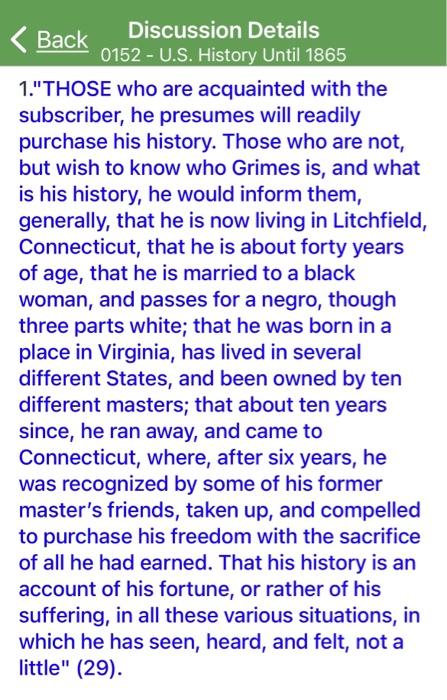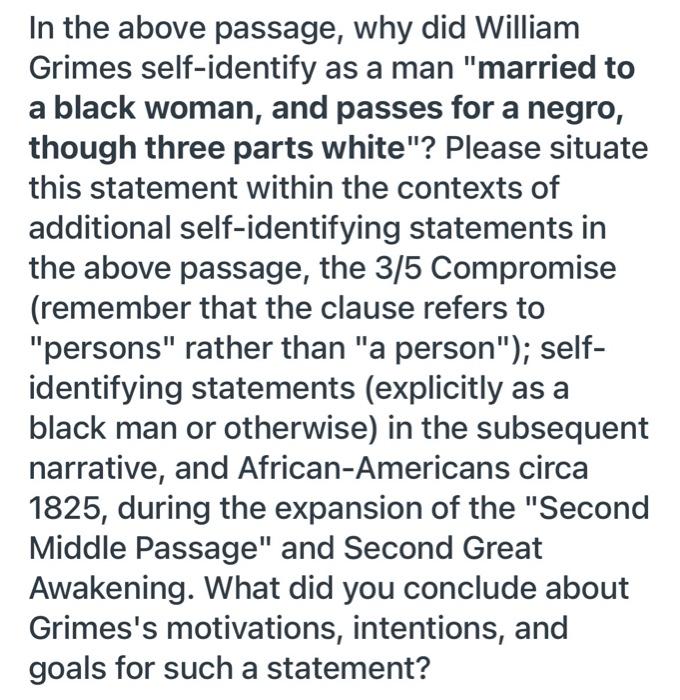Back Discussion Details 0152 - U.S. History Until 1865 1."THOSE who are acquainted with the subscriber, he presumes will readily purchase his history. Those who are not, but wish to know who Grimes is, and what is his history, he would inform them, generally, that he is now living in Litchfield, Connecticut, that he is about forty years of age, that he is married to a black woman, and passes for a negro, though three parts white; that he was born in a place in Virginia, has lived in several different States, and been owned by ten different masters; that about ten years since, he ran away, and came to Connecticut, where, after six years, he was recognized by some of his former master's friends, taken up, and compelled to purchase his freedom with the sacrifice of all he had earned. That his history is an account of his fortune, or rather of his suffering, in all these various situations, in which he has seen, heard, and felt, not a little" (29). In the above passage, why did William Grimes self-identify as a man "married to a black woman, and passes for a negro, though three parts white"? Please situate this statement within the contexts of additional self-identifying statements in the above passage, the 3/5 Compromise (remember that the clause refers to "persons" rather than "a person"); self- identifying statements (explicitly as a black man or otherwise) in the subsequent narrative, and African-Americans circa 1825, during the expansion of the "Second Middle Passage" and Second Great Awakening. What did you conclude about Grimes's motivations, intentions, and goals for such a statement? Back Discussion Details 0152 - U.S. History Until 1865 1."THOSE who are acquainted with the subscriber, he presumes will readily purchase his history. Those who are not, but wish to know who Grimes is, and what is his history, he would inform them, generally, that he is now living in Litchfield, Connecticut, that he is about forty years of age, that he is married to a black woman, and passes for a negro, though three parts white; that he was born in a place in Virginia, has lived in several different States, and been owned by ten different masters; that about ten years since, he ran away, and came to Connecticut, where, after six years, he was recognized by some of his former master's friends, taken up, and compelled to purchase his freedom with the sacrifice of all he had earned. That his history is an account of his fortune, or rather of his suffering, in all these various situations, in which he has seen, heard, and felt, not a little" (29). In the above passage, why did William Grimes self-identify as a man "married to a black woman, and passes for a negro, though three parts white"? Please situate this statement within the contexts of additional self-identifying statements in the above passage, the 3/5 Compromise (remember that the clause refers to "persons" rather than "a person"); self- identifying statements (explicitly as a black man or otherwise) in the subsequent narrative, and African-Americans circa 1825, during the expansion of the "Second Middle Passage" and Second Great Awakening. What did you conclude about Grimes's motivations, intentions, and goals for such a statement








